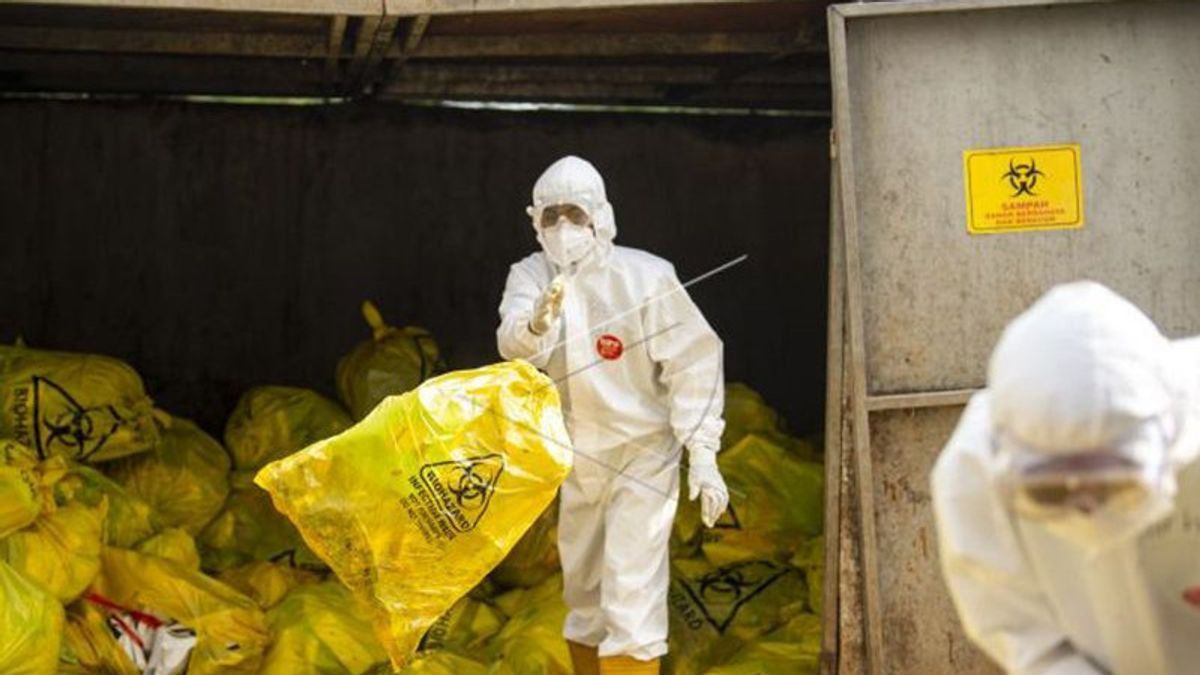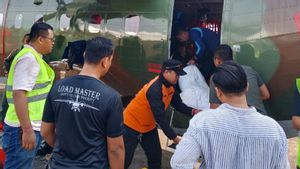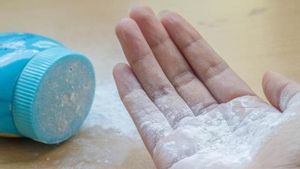JAKARTA - The COVID-19 Task Force stated that the amount of medical waste during the COVID-19 pandemic had increased many times. In fact, this increase in medical waste has the potential to cause transmission.
"This medical waste is dangerous to us. What are the dangers? It can be infected if it is in the waste, bacterial and viral germs that can make people infected," said Lia Partakusuma, Member of the Handling of the COVID-19 Task Force in Menteng, Central Jakarta, Saturday, December 18.
As an example of Lia, this transmission is through medical waste when someone exposed to COVID-19 sneezes on their mask. Then, the mask is thrown away and taken by someone else to collect. That's where the potential for transmission occurs. Because the virus can stay alive on objects for several hours.
"The virus can stay on solid objects for up to 5 hours, some even for 3 days. Imagine using a tissue mask, we throw it away, taken by someone else, that person has the potential to be infected," said Lia.
On the other hand, said Lia, when COVID-19 cases were high, the waste of used masks in all health care facilities (fasyankes) rose very high. In fact, it reaches 493 tons per day. In fact, when compared to the previous only 75 tons per day. As a result, there has been an increase in the quantity of mask waste many times over.
"What was previously 75 tons per day for this health facility has increased by 108 tons, increased to 300 tons per day, yesterday's increase was 493 tons per day," he said.
Therefore, the public is asked to be wiser in disposing of mask waste. Thus, the potential for transmission of COVID-19 can be reduced.
The English, Chinese, Japanese, Arabic, and French versions are automatically generated by the AI. So there may still be inaccuracies in translating, please always see Indonesian as our main language. (system supported by DigitalSiber.id)










